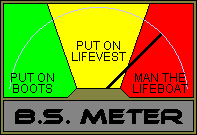DarylB
ArboristSite Operative
EGR is one of the only ways to get the NOX emissions down to a reasonable level. They even use EGR cooler to lower the temp of the inert gas further.
The soot levels of modern diesels are pretty low. As far as I know, all the current new diesels call for low ash oil and using anything else will clog the DPF in short order.
I've got a diesel myself, even if it isn't a truck. It uses far less fuel than the competitors gas engines and it's a Kubota, so it should be running for a long time.

Slick ride. Lots of those things down in my area, but I've never seen a Kubota. Mostly Polaris rangers, Yamaha Grizzlys, Kawasaki mules.
My truck has EGR but no DPF (2006 engine, 2007 chassis). The oil turns black in a week with the EGR. After 5k miles on the old non-egr truck the oil would still be brown. As soon as I can afford an ECM Tune, the EGR valve will cease to exist (operate).

























































